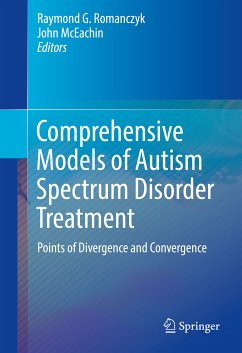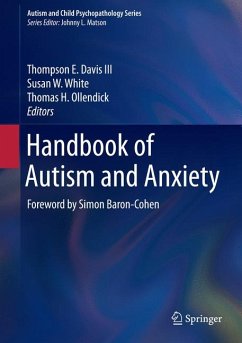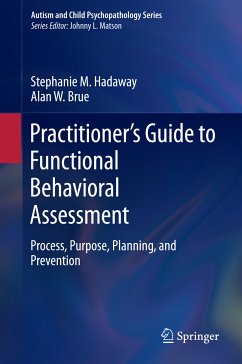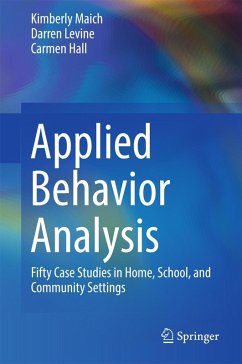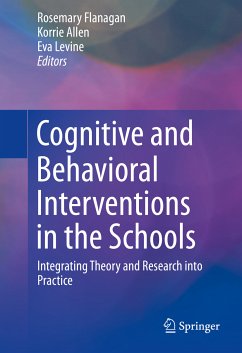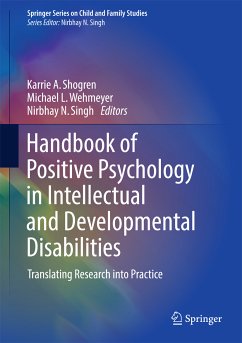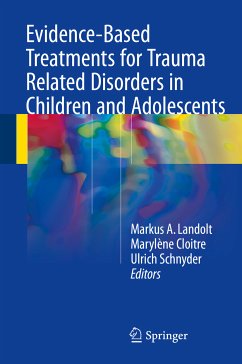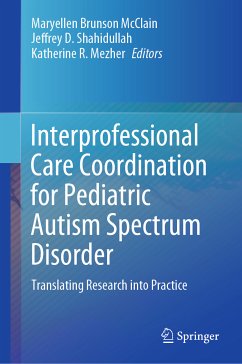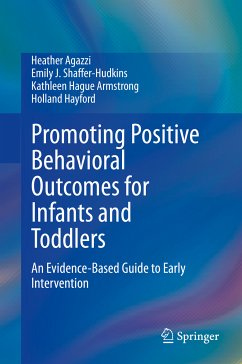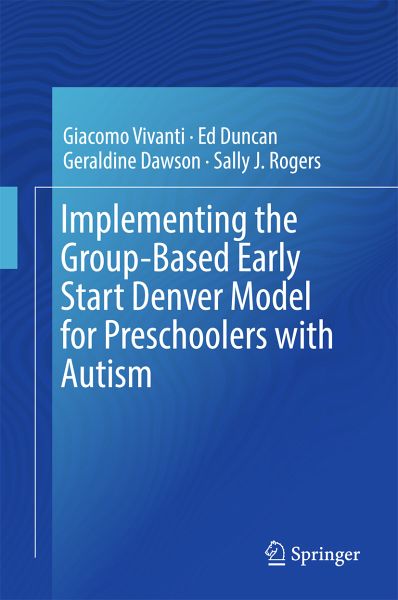
Implementing the Group-Based Early Start Denver Model for Preschoolers with Autism (eBook, PDF)
Versandkostenfrei!
Sofort per Download lieferbar
68,95 €
inkl. MwSt.
Weitere Ausgaben:

PAYBACK Punkte
34 °P sammeln!
This book examines a group-based adaptation of the Early Start Denver Model (ESDM) designed for use with preschoolers with autism spectrum disorder (ASD). It describes the principles and procedures of the Group-Based Early Start Denver Model (G-ESDM) and provides practical and empirical guidelines for implementing effective, affordable programs across public healthcare and educational settings. Chapters offer rationales and strategies for designing and evaluating interventions, building interdisciplinary teams, and organizing learning spaces to engage student interest. Examples discuss the soc...
This book examines a group-based adaptation of the Early Start Denver Model (ESDM) designed for use with preschoolers with autism spectrum disorder (ASD). It describes the principles and procedures of the Group-Based Early Start Denver Model (G-ESDM) and provides practical and empirical guidelines for implementing effective, affordable programs across public healthcare and educational settings. Chapters offer rationales and strategies for designing and evaluating interventions, building interdisciplinary teams, and organizing learning spaces to engage student interest. Examples discuss the social interactions in groups that provide opportunities for learning, improving interpersonal skills, and reducing problem behaviors. In addition, the book offers ideas for retooling teaching strategies when an individual child lags behind the rest of the group.
Featured topics include:
- Creating treatment objectives in the G-ESDM.
- Setting up the G-ESDM team and learning environment.
- Development of the G-ESDM classroom curriculum.
- Practical tools such as decision-making trees, teaching templates, and fidelity systems.
- Facilitating learning through peer interactions and social participation.
Implementing the Group-Based Early Start Denver Model for Preschoolers with Autism is a must-have resource for clinicians and practitioners as well as researchers, professors, and graduate students in the fields of child and school psychology, behavioral therapy, and social work along with psychiatry, pediatrics, and educational and healthcare policy.
Dieser Download kann aus rechtlichen Gründen nur mit Rechnungsadresse in A, B, BG, CY, CZ, D, DK, EW, E, FIN, F, GR, HR, H, IRL, I, LT, L, LR, M, NL, PL, P, R, S, SLO, SK ausgeliefert werden.
Alle Preise in Euro und inkl. der gesetzl. MwSt. | Innerhalb Deutschlands liefern wir preisgebundene Bücher versandkostenfrei. Weitere Informationen: bitte hier klicken
Support
Bitte wähle dein Anliegen aus:
Rechnungen
Bestellstatus
Retourenschein
Storno



